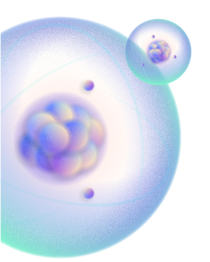ABSTRACT
In recent years most industrialized countries have realised that the much-needed decarbonisation of energy-generating systems by 2050 cannot be achieved by employing intermittend renewable energy sources (wind, solar, hydro) alone. As the availability of renewables is far from 100%, significant overbuild renewables capacity would have to be installed and carbon-free backup energy systems, likely based on batteries and hydrogen gas, would be needed. Both is economically not viable as experience in Germany over the past 20 years clearly demonstrates.
At the November 2023 United Nations Climate Change Conference in Dubai, 22 mostly Western industrialized countries have committed to triple their nuclear energy generation for getting closer to Net Zero carbon emissions in 2050.
In this talk, I will briefly review the history of nuclear energy and present Generation IV reactor technologies which address current criticism with regards to nuclear energy.
Specific Generation IV reactor technologies aim to
a) be inherently safe due to elimination of major hazards (pressure, core melt-down, ...)
b) leave nuclear waste that will require storage for only 300 - 500 years rather than >100,000 years as current water reactor technology
c) use all mined Uranium/Thorium for energy generation and allow to operate in a closed Uranium or Thorium fuel cycle which makes nuclear energy a sustainable energy source for 10,000 years or more
d) have load-following capabilities allowing a balancing of the electrical grid and integration with renewables
e) have high operation temperatures which provide better Carnot efficiencies in electricity generation as well as direct usage of the generated heat for large-scale industrial processes (e.g. thermal generation of hydrogen gas, production of synthetic fuels, steel and cement, desalination of sea water, ...)
g) be energy price competitive with fossil fuels, solar and wind
The Dual Fluid Reactor (DFR) is a patented novel concept of a nuclear reactor based on liquid fuel. Its key feature is - different from other liquid fuel based concepts like the molten salt reactor MSR - the use of two separate cycles, one for fuel and one for coolant. Both cycles can be optimized for their respective purpose. The advantage of this concept is an extremely high economic efficiency in terms of the EROI (energy return on invested) with a very compact design at a high operating temperature of 1,000 °C.
BIOGRAPHY
Career Highlights:
2023 - Senior Nuclear Advisor (Dual-Fluid Energy Inc., Canada)
2017 - 2019 Professor of Material Science and Engineering (Technion Israel Institute of Technology, Guangdong Technion Israel Institute of Technology, Shantou, China)
2014 - 2022 Visiting Professor (Physics Department, The City University of Hong Kong)
2007 - 2017 Research Leader (Australian Nuclear Science and Technology Organisation)
1999 - 2007 Senior Scientist (Oak Ridge National Laboratory / US Department of Energy)
1997 - 1999 Professor of Technical Physics, HTW Dresden, Germany
Date & Time
Venue
Chair

